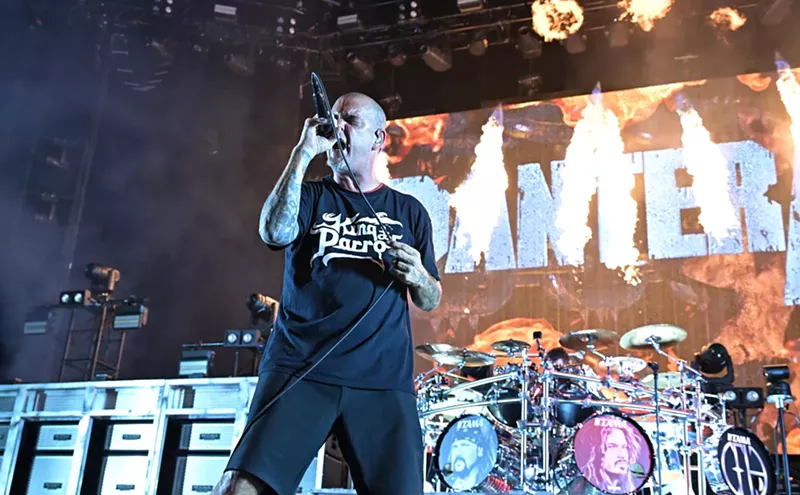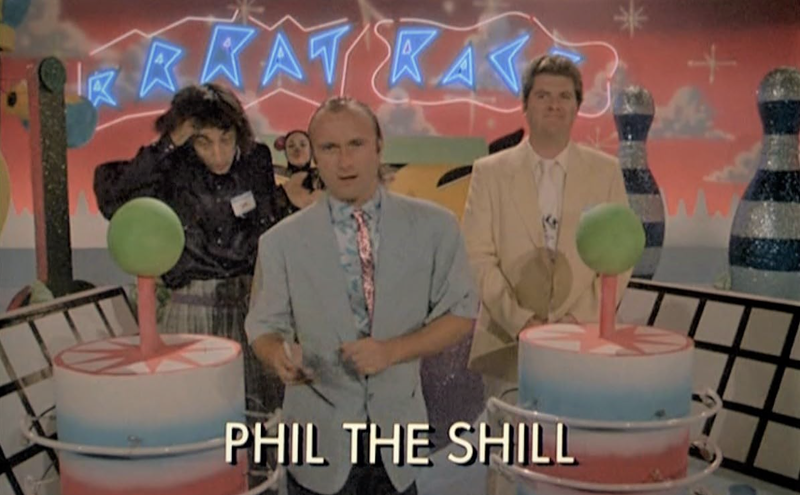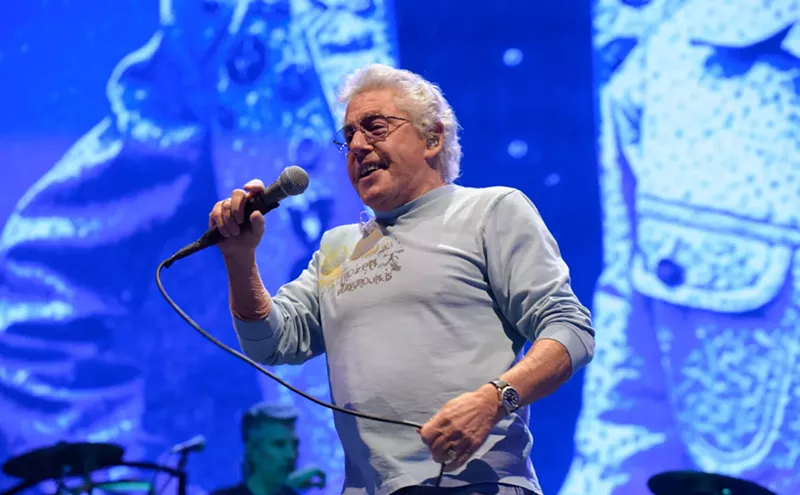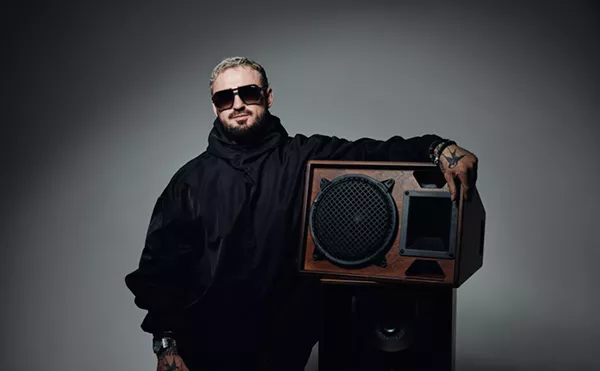Soda.
"We were bringing a thousand kids to our parties before MySpace."
tweet this
Now close your eyes.
What do you see? Chances are, floating in the tunnels of your subconscious, there's either a red-and-white Coca-Cola bottle or a blue Pepsi can — maybe a Dr. Pepper for all you rebels out there. That's no coincidence. It's called brand association. You think of one thing (cereal), and then, as if handcuffed together, a tangible brand comes slingshotting around (Wheaties).
It happens in almost every aspect of our lives. And it's been happening in hip-hop since Ice Cube wiggled his first Raiders hat onto his head and Run-D.M.C. wrote a whole song about what kind of shoes they were wearing (hint: not Nikes).
Few hip-hop markets brand-associate as tenaciously as Miami. We've all witnessed what DJ Khaled has accomplished in the past year via Snapchat. Now it's hard not to hear his voice in your head every time you pass cocoa butter in the grocery store. And if an image of Rick Ross flashes into your brain when you drive by a Wingstop, that means Lex Pierre-Louis is doing his job.
The 32-year-old entrepreneur and lifestyle marketing coordinator for Ross' record label, Maybach Music Group, spends a healthy slice of his time attempting to carve the MMG brand into something tangible, to turn Rick Ross into a product you can not only listen to but also buy, wear, and drink — as weird as that sounds. It's a side of the music industry South Florida helped pioneer.
"I definitely think it's a Miami thing," Pierre-Louis says. "You've got to look at old-school cats like Uncle Al and E-Class from Poe Boy Records... You've got to look at the Caribbean and Jamaican guys — they weren't on mainstream radio. So the only way these Caribbean artists could get their message to their audience was literally to go out in the streets wherever the fans were and pass out a flier or put up a poster. So I think that got passed on with the Miami culture."
These days, social media rules the marketing world, but Pierre-Louis remembers when that wasn't an option. Born and raised by Haitian parents in Montreal, Pierre-Louis first moved to Miami in 1993. His mother was a nurse, his father a mechanic who ran his own shop. Together, he says, they were "the typical, old-school Caribbean parents," which meant that if he wanted to buy something, he had to buy it with his own money.
So Pierre-Louis shoveled snow in Canada and then traded the shovel for a lawn mower when he moved to South Florida. In high school, a more glamorous opportunity presented itself, and he began DJing at school dances, selling mixtapes to fellow students, and throwing parties anywhere he could.
Then he landed a gig as the DJ of the Miami Ice Arena, and that's when he really started to get his name out there. His parties, which he promoted himself, grew bigger. He even booked a very young Pitbull at an all-ages party in town for only $1,000.
"We were bringing a thousand kids to our parties before MySpace, before Facebook, before social media."
How exactly?
Pierre-Louis leans down, rips a chunk out of a magazine, and waves it around.
"Real old school," he says. "Literally, you get a piece of paper. You go on a computer at school — because we didn't have computers at home yet — design a mock
His was a boots-on-the-ground approach, the same hustle that landed Khaled headlining gigs and guided Ross out of Carol City.
After high school, Pierre-Louis attended Broward College, where he began his studies to become a pharmacist — not exactly his first choice. "Lawyer, doctor, nurse, engineer: Those are the four careers Haitian parents know," he laughs.
Things went well, and Pierre-Louis was getting the grades he needed to succeed, but then he got a call from Uncle Luke. The 2 Live Crew frontman needed someone to promote an upcoming East Coast tour, and he wanted Pierre-Louis for the job. Basically, when the doors opened, it would be Pierre-Louis' duty to ensure there was a line waiting to get in.
It was an opportunity the young promoter couldn't refuse, and one that eventually cost him his future as a pharmacist. The tour forced Pierre-Louis to spend a semester away from school, and when he finally returned (to a declining GPA), he switched his major and graduated with a degree in marketing and management.
It was a welcome detour. By the time he graduated, he had his own business, Lex
"The model for my company was
Music was always a part of his business, but it wasn't his main focus until he got a call from Rick Ross around May 2012. The two had crossed paths on more than one occasion in the small world of Miami hip-hop. "He called me one day, literally out of the blue, like, 'Hey, come meet.'" So Pierre-Louis did. "Congratulations," Ross told him. "You're signed to MMG. Change your Twitter; change your Instagram — I'm making you lifestyle marketing."
Now, in addition to still running Lex Promotions and Marketing Group, Pierre-Louis manages the lifestyle and branding of a roster including Meek Mill, Wale, and Omarion. "My job is
It's a side of the industry that Ross clearly thinks is important. The music video for "Hustlin'," his first big single, features only one corporate product placement: when two women enjoy a shot of Bacardí Limón five seconds into the video.
In one of Ross' most recent music videos, "Peace Sign," Luc Belaire Rosé (one of his biggest corporate sponsors) is shown on camera, label facing out, no less than ten times. The black bottle appears in many different forms an average of every 25 seconds throughout the four and a half minute video.
Pierre-Louis has been forced to delay more than one interview until those very bottles are positioned ever so conveniently over the shoulder of Mr. Ross. "You don't understand how many interviews we've gone that we're like, 'Where are the MMG
If Ross' Wingstop and Rosé shoutouts seem excessive, consider DJ Khaled (Pierre-Louis has worked with him too), who literally spent his whole career screaming his own name, and, more recently, filmed the entire music video for "Gold Slugs" at
But even though there's money in hip-hop branding, the industry is a changing and uncertain landscape, Pierre-Louis admits. Miami hip-hop can be fragmented, with every man and woman looking out for themselves. And the opportunities today for up-and-coming artists and those looking to get into the music industry aren't as plentiful as they were in the heyday of the Miami bass scene.
That might be part of the reason Pierre-Louis is constantly looking for new avenues to explore. Before he drove to Wynwood to speak with New Times, he was at a City of Miami Commission meeting, watching as commissioners decided whether to officially designate Little Haiti a neighborhood in the City of Miami. Doing so, many activists (including Pierre-Louis) thought, would help protect the area from the hawks of gentrification. The city eventually decided to officially recognize Little Haiti, which Pierre-Louis couldn't stop smiling about.
Haiti and its people are very near to his heart. After the earthquake in 2010, Lex watched friends and families lose lives and property. Since he was a child, he has visited the island annually with family. One year, he took along a suitcase full of toys. That suitcase grew and grew, and last Christmas, in a campaign organized through social media, he brought 5,000 toys to Haiti on a private plane. Now his Christmas toy drive is one of his biggest events of the year. If you plan to contact Pierre-Louis around the holidays, you better be prepared. "Every person that calls my phone, whoever it is, I say, 'Yo, don't talk to me if you can't go to the dollar store and spend $10 on toys.' "
It remains one of his proudest moments, and he plans to grow the drive every year and eventually expand to more than just toys.
When he did touch down in Haiti last December, looking out at hundreds of outstretched palms, he realized how closely linked he was to the island. It's something he wishes more Haitian-Americans would understand. "We're lucky to be living with running water, A/C, good roads, no civil wars... You can live the American dream as long as you apply yourself to it." Having just turned 32, he more often reflects back on a life that could have been.
"Like, one generation and I would have been born in Haiti, and I may not have had the opportunity to live here in the States," he says. "So that is always in the back of my head: I'm lucky to be here, to have the opportunity to travel the world with Ross and do all this great stuff, but I could have easily been a 32-year-old guy living in Haiti — and how different my life would have been."












